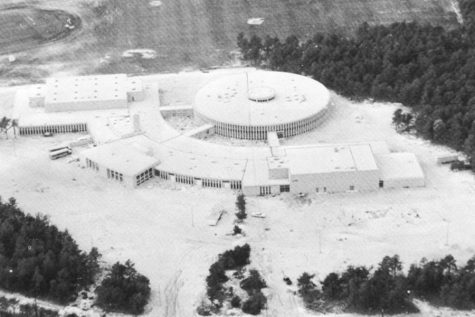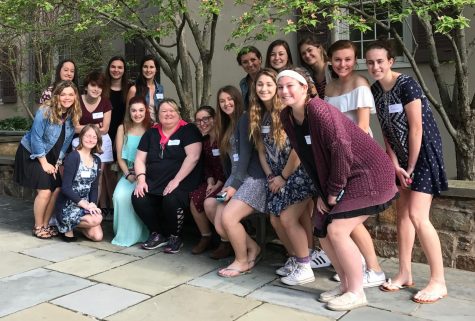What is a Scientific Theory?
April 27, 2017
If you’ve ever found yourself in a debate with someone over the validity of any particular scientific theory (evolution, I’m looking at you), then you may come up against one of the most popular arguments out there: “It’s only a theory.”
Of course, the speaker is implying that because your argument is based on a theory, it cannot possibly be backed up by concrete evidence, and this is true. That is because concrete evidence essentially doesn’t exist. It also implies that the theory is based on a guess, which is also true.
So, if a scientific theory is just a guess based on zero concrete evidence, why would anyone ever want to trust them?
A scientific theory is different from a “theory” that may be used in an everyday conversation. You may have the “theory” that your dog rips up your sofa because you don’t walk him enough, or that your city’s construction workers are actually taking longer to build that new apartment complex on purpose, despite the lack of evidence. These are both situations in which a “theory” exists, but it is not a scientific theory.
The difference between a regular theory and a scientific theory is that scientific theories are formulated by repetitive experimentation and observation. For example, a scientist may turn his or her key in his or her car, and the engine may start. Since this same phenomenon occurs every single time this scientist turned his or her key, the scientist may theorize that turning his or her key causes the engine to start.
However, even now, it is still not a scientific theory. Other scientists will want to disprove the first scientist’s theory in order to have the credit for putting forth a better, more complete explanation of the phenomenon of starting the engine. These scientists will do hundreds of thousands of trials to find a single trial that disagrees with the currently accepted theory. For example, if the engine does not start once, the theory that turning the key causes the engine to start is in trouble.
If such a contradictory finding does occur, the scientists who discover it will begin to work out why the engine did not start this time despite starting every other time. From the time spent working out this conundrum, a new theory will be drafted explaining in more detail exactly how a key and an engine works. The old theory will take a seat as the new one takes its place as the widely accepted theory in science. Of course, this will restart the process of trying to disprove the current theory again. This is why there is never any concrete evidence to support a theory; because it is based on humanity’s best attempt at guessing what in the world is going on. The guesses may be based on factual observations, but at the end of the day, they are still guesses.
This is how theories evolve. A theory is the best explanation for any phenomenon available to mankind at any given point in time. Therefore, “scientific theory” is actually the highest compliment one could give to any idea about the world. It shows that, so far, nothing is better at explaining the phenomenon than the theory itself. Nobody has a better idea for why that thing is the way it is.
So next time you come across someone using the “theory” argument against you, make sure you politely explain to them why a scientific theory is unlike other theories in that it has been put under strenuous skepticism and testing before it can be crowned “accepted theory” and “best explanation so far.”





